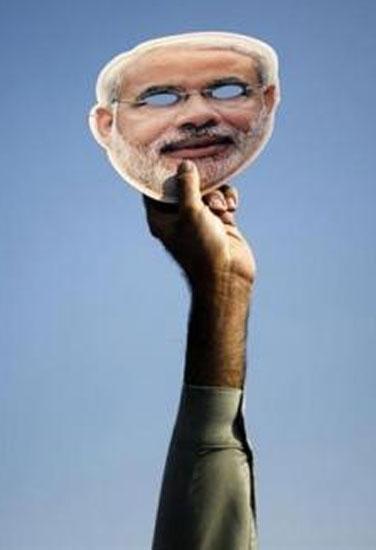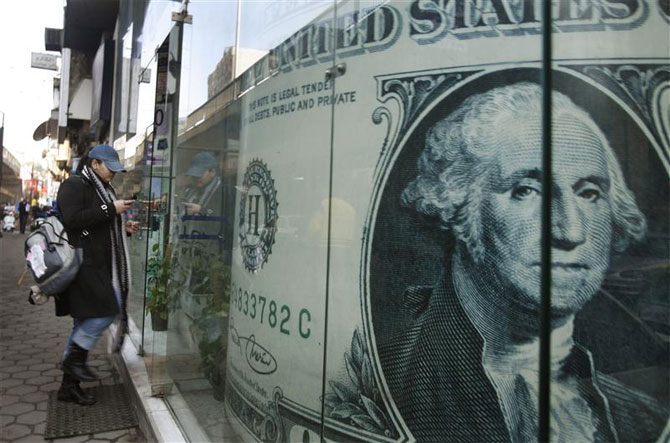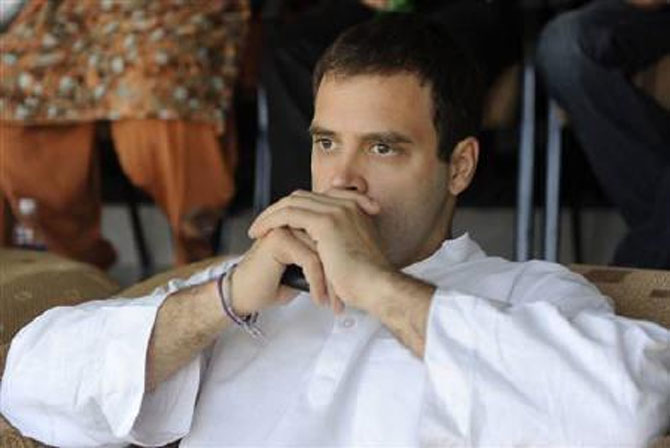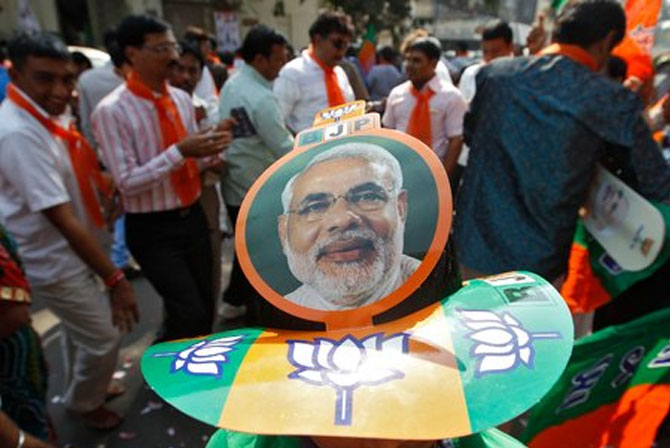 | « Back to article | Print this article |
Do Indian politicians lack economic vision?
Both BJP and Congress are offering more of the same, without appearing to realise that welfarism can cause bigger economic problems if adequate growth is not ensured.
The Congress and the Bharatiya Janata Party (BJP) both had major meetings in the past week. While neither national party has as yet released a manifesto, the meetings did at least bring a certain minimal clarity to their economic agenda.
Unfortunately, the clarity so provided is not precisely grounds for optimism. The turn towards welfarism of the past 10 years seems to have become strongly entrenched in the Indian polity.
Even the BJP, running on Narendra Modi’s reputation as a reformer chief minister, has spoken the language of subsidies and handouts.
Both national parties are, in essence, offering more of the same, without appearing to realise that welfarism can cause bigger economic problems if adequate growth is not ensured.
Click on NEXT for more...
Do Indian politicians lack economic vision?
If there is any real difference between the parties in terms of economic vision, then it is on foreign investment, and it is the BJP that has failed to modernise its vision and embrace reform.
The resolution adopted on January 17 at the meeting of the All-India Congress Committee, or AICC, promised an “environment conducive to investment, both domestic and foreign”.
The BJP’s economic policy resolution at its national council meeting over the weekend, however, did not explicitly mention foreign direct investment (FDI).
The party has, of course, blocked various forms of FDI in the recent past; and party president Rajnath Singh at the national council meeting returned to this stand, declaring that the Congress-led United Progressive Alliance (UPA) government had opened up excessively to FDI “without sufficient consultation”.
Click on NEXT for more...
Do Indian politicians lack economic vision?
While it is regrettable that the Congress failed to more explicitly make the case that foreign investment leads to efficiency improvements and greater choice – opening up the door to criticism that it will merely double down on its focus on foreign institutional investment – the BJP’s near-xenophobic stance on foreign investment nevertheless makes the difference stark.
It is unfortunate that neither national party seems able to move beyond a rhetoric that depends on subsidies to appeal to voters.
Congress vice-president Rahul Gandhi even made an appeal for 12, not 9, subsidised liquefied petroleum gas cylinders in a year the centrepiece of his address to the AICC.
Click on NEXT for more...
Do Indian politicians lack economic vision?
The party resolution emphasised the increase in budgetary allocations for social welfare schemes, a “right to health” and a “right to justice”.
The BJP tried to appropriate the Congress’ rights-based approach by also promising a “right to health” for the poor, as well as a minimum guaranteed farm income and a job for one member of every family in India.
On the other hand, the party also indicated that it would “provide substantial relief to the income tax-paying middle class”.
If so, it is difficult to see how an expansion of subsidies and entitlements can be paid for, at a time when the fiscal deficit has already expanded dangerously under a free-spending UPA and neither of the parties has spelt out any concrete steps to bring about a manufacturing revival.
This is the definition of irresponsible politics. Both national parties’ economic vision, such as it is, leaves a great deal to be desired.




